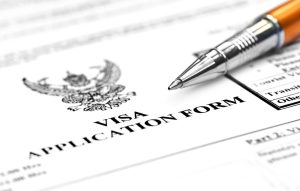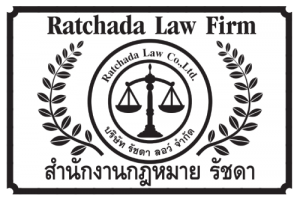Establishing a Representative Office in Thailand
A representative office is the ideal business entity for foreign investors who are exploring the Thai market. The RO can be 100 percent foreign-owned and can provide up to two work permits for foreign employees.

The entity is not allowed to earn income while operating in Thailand and thus is not subject to corporate income tax. The RO’s activities are restricted to market research, finding new partnerships, and other forms of information gathering.
Establishing a representative office (RO) in Thailand is a relatively simple process compared with setting up a foreign-owned company. The RO can be 100 percent foreign-owned and is often the popular choice of business entity for foreign investors who are still exploring the Thai market. The RO can assist the parent company in finding new partnerships or opportunities.
A major advantage of establishing a representative office in Thailand is that this entity does not require a Foreign Business License (FBL). The FBL is regulated under the Foreign Business Act, which restricts the activities that foreign companies can engage in. It is also important to note that the RO is not allowed to earn an income in Thailand.
The requirements to set up a representative office in Thailand:
The foreign parent company must submit the following documents to the Department of Business Development at the Ministry of Commerce.
- Application form for establishing a representative office in Thailand;
- Copy of the company affidavit that showcases the name, objectives, capitals, and details of directors; and
- A notarized copy of the power of attorney for the agent or principal manager who will manage the day-to-day operations of theA notarized copy of the power of attorney for the agent or principal manager who will manage the day-to-day operations of the representative office. The agent can be a Thai national or a foreigner. If a foreigner is appointed, they will need to submit their passport details and evidence of permission to enter and stay in Thailand.
All the mentioned documents need to be notarized and certified by a local Thai embassy.
The Department of Business Development usually issues a certificate between two to four weeks following the submission of the documents. The certificate permits the representative office to begin operations.
Capital requirements
The representative office requires a minimum of 2 million baht (US$56,211). If the RO is supposed to operate for less than three years in Thailand, then the entire required minimum capital needs to be injected within six months of being registered.
However, if the RO is supposed to operate for more than three years, then the capital can be injected as follows:
- A minimum of 25 percent of the total required capital within three months of being registered;
- Another 25 percent within the first year;
- 25 percent within the second year; and
- 25 percent in the third year.
25 percent in the third year.The permitted business activities of a representative office in Thailand:
The RO is not permitted to earn income and therefore its activities are limited to the following:
- Conducting market research and reporting business trends in Thailand for the foreign parent company;
- Source goods and services for the parent company;
- Source goods and services for the parent company;Checking and controlling the quality of goods or services purchased by the parent company;
- Planning of sales promotions; and
- Advising Thai customers about the goods or services sold by the parent company.
All expenditures incurred by the RO must be borne by the parent company. Further, since the RO earns no income, the business entity is not subject to corporate income tax.
The hiring of foreign staff
A Thai representative office can take advantage of the reduced requirements to hire foreign staff. The RO can provide work permits for a maximum of two foreign employees while a Thai limited company is subject to a work permit ratio of four Thai employees for each foreign employee.
Latest Articles

To Establish a Branch Office in Thailand
Establishing a branch office in Thailand can be more complex, costly, and timely when compared to incorporating a private limited company. However, the advantage of a branch office is that it can be 100 percent foreign-owned.

Thailand Visa Procedure in brief
Generally, a foreign citizen who wishes to enter the Kingdom of Thailand is required to obtain a visa from a Royal Thai Embassy or a Royal Thai Consulate- General

Laws of Thailand
The principal law sources in Thailand are: Criminal law; Administrative law; Immigration law; Private law; Law of Obligations; Corporate law;

Thailand’s Personal Data Protection Act
Thailand’s first-ever law on personal data protection came into force on June 1, 2022. The law outlines the obligations for businesses regarding the collection and processing of personal information. The government is expected to provide a grace period for SMEs to comply with the new law.
